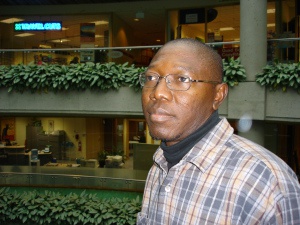A presidential staffer, Dr. Clement Apaak has thrown the challenge to Religious leaders in the country to play their part in the fight against corruption and not to shed the responsibility of government and civil society groups alone but also walk the talk.
In what appears to be a quick rebuttal to a purported sermon by the Metropolitan Catholic Archbishop of Accra, Charles Gabriel Palmer Buckle during a function organized by the institute of Economics Affair to mark its 25th anniversary celebration calling on civil society organisations (CSOs) and policy think-tanks, particularly the Institute of Economic Affairs Ghana (IEA) to liberate Ghanaians from what he described as the “economic shackles”, Dr. Apaak observed “the Moral society could do more in the fight against corruption.
“Maybe we will make more progress in the fight against corruption if moral society moved beyond talk and complaints to exposing, reporting and disowning those their members profiting and benefiting from fraud and acts of corruption against the State to the detriment of the people” Dr. Clement Apaak noted.
The Metropolitan Catholic Archbishop of Accra, Charles Gabriel Palmer Buckle, observed that in spite of the God-given resources at the disposal of the country, Ghanaians are suffering untold hardships because of economic mismanagement and corruption. “It seems everything in Ghana is good except Ghanaians,” he said, pointing out the difficult times Ghanaians find themselves in under the John Mahama-led National Democratic Congress (NDC) government.
However, in a post by the former lecturer and Staffer at the Flagstaff house, Dr. Clement Apaak on his Facebook wall yesterday, under the heading “Fight Against Corruption - Moral Society Can Do More” he questioned the role being played by the religious authorities in the country to help curb the canker. Bellow is the full post made by Dr. Clement Apaak:
“"Corruption is Killing Ghanaians" (Palmer-Buckle) is a truism. Yes, that is why President Mahama on several occasions likens corruption to murder and has called on all of us to join in the fight against corruption.
The question is this: What has been the role of the moral component (religion and other faith based institutions) of our society in the fight against corruption?
Do you not think that besides Government, NGOs and CSOs, it's time for moral, social to take up an active role, especially when most Ghanaians claim to be religious?
Will religious and faith-based institutions expose, report and disown those in their midst, their followers, and congregants, who have or are suspected of engaging in acts of corruption; duping and defrauding the State?
Will religious and faith-based institutions question the sources of wealth of their members?
Maybe we will make more progress in the fight against corruption if moral society moved beyond talk and complaints to exposing, reporting and disowning those their members profiting and benefiting from fraud and acts of corruption against the State to the detriment of the people!
In truth, as a nation, the time has come for action by all components of our society in the fight against corruption, not just the Government, NGOs and CSOs”.
General News of Thursday, 6 November 2014
Source: The Republic

















